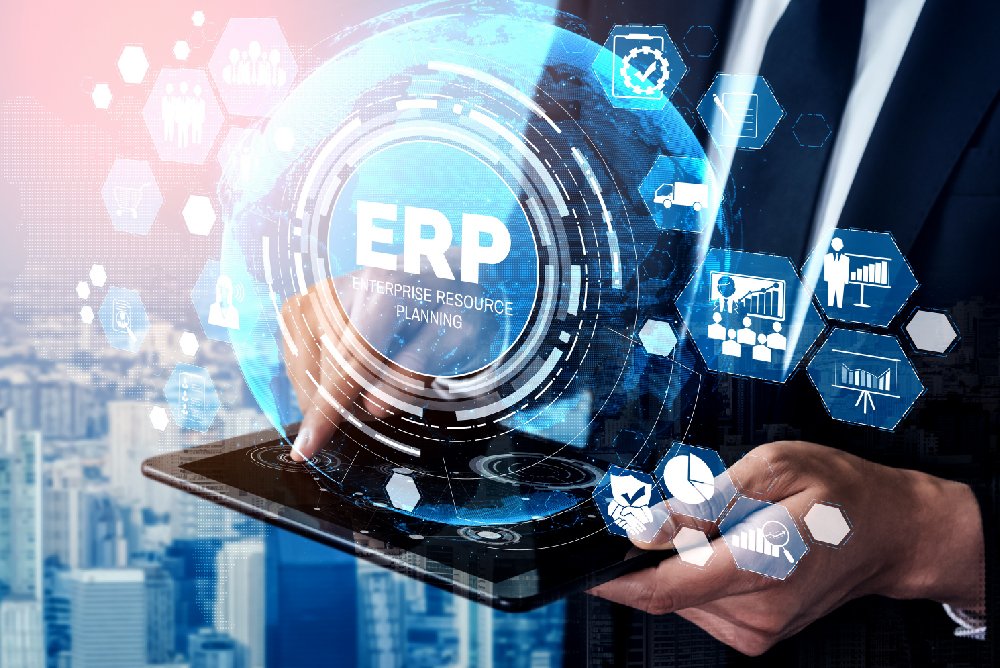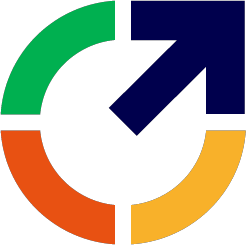Enterprise resource planning (ERP) software has been around for over three decades, and the industry has evolved significantly since that time. Initially, they were used primarily to automate manual processes and reduce business costs. However, as technology has progressed, the role of It has grown, and they are now an integral part of any modern business.
This blog discusses some of its biggest trends for 2023 and how they differ from previous years. We’ll also explore how the pandemic has affected its development and adoption. So whether you’re considering it for your business or are simply curious about the latest trends, read on!
ERP Trends :
User Experience and User Interface
User experience (UX) and user interface (UI) are key elements of enterprise resource planning systems that should always be considered. These components are part of the overall process flow and help drive user adoption while reducing the margin of error due to ease of use. UX/UI matters in the design and a system’s intuitiveness, integration with existing systems, workflow processes, and data analytics. Designers must emphasize usability and aesthetics equally to maximize user engagement while achieving strategic goals. By focusing on UX/UI as part of ERP implementation, businesses can ensure their users have access to the most feature-rich solutions that still give an intuitive end-user experience.
The trend of mobile ERP applications
In the latest wave of business technology, mobile ERP applications have become increasingly popular. These applications allow users to take their ERP system on the go, allowing critical business management operations to be conducted wherever and whenever necessary. With secure and intuitive interfaces, mobile ERP apps have revolutionized the way management can interact with their data promptly, creating greater efficiency and accuracy for companies of all sizes. As modern organizations continue to demand faster, more up-to-date processes, the trend of mobile ERP applications is likely to only grow in terms of adoption and breadth.
Focus on Cloud ERP
Cloud ERP (Enterprise Resource Planning) has become an extremely popular and efficient choice for organizations looking to streamline their information systems. From a cost perspective, the platforms are particularly attractive since there are no huge upfront investments required, instead providing a “pay as you go” approach with reasonable entry-level fees and flexible options to scale up as needed. Furthermore, the support and maintenance responsibilities shift to the cloud system provider which makes managing your IT infrastructure much easier. Finally, don’t forget that cloud ERP solutions are usually more sophisticated than traditional on-premise systems, giving organizations access to real-time insights that help them quickly make the right decisions. As the digital transformation continues, deploying a cloud-based ERP system is increasingly becoming a must-have business tool to stay competitive in today’s marketplace.
The advent of artificial intelligence and machine learning
Automation is changing the way we think about enterprise resource planning (ERP). Artificial intelligence (AI) and machine learning are transforming how businesses store, manage, and utilize their resources. These advanced technologies let companies automate tedious tasks, increase accuracy in data processing, reduce costs associated with manual labor, and speed up decision-making. Modern cloud-based ERP systems integrate AI and machine learning to empower employees across all organizational levels by providing real-time insights into their operations with predictive analytics. This increased visibility allows companies to spot inefficiencies in areas like supply chain management and optimize processes around them for better results. With AI steadily modernizing ERP, businesses can stay informed and make more informed decisions that result in maximum growth potential.
The importance of data security
The integrity of a business’s data is paramount to its success, making data security a critical component of it. Unfortunately, hackers and malware threats are constantly evolving and looking for new ways to attack. Implementing security measures can protect companies from devastating breaches and financial loss. Advanced authentication techniques such as multi-factor authentication and identity access management will help secure sensitive corporate information and ensure only authorized personnel can access necessary data sets. Furthermore, ongoing monitoring with automated reports generated by the ERP system alerts IT teams to any suspicious activity on the platform. By taking decisive action to improve data security in ERP systems, businesses can rest assured that their most valuable asset is guarded against malicious attacks.
Integration with the Internet of Things (IoT)
Internet of Things (IoT) has revolutionized the way businesses operate. Integrating IoT and Enterprise Resource Planning (ERP) systems allows organizations to streamline their processes and create a truly connected enterprise. It enables organizations to make informed decisions by providing better visibility from multiple angles, and real-time data. Combining IoT with it makes processes more automated, efficient, and secure. In addition, comprehensive analytics can be used to identify trends and develop insights for long-term success. Integrating IoT with it offers a world of possibilities for businesses looking for a streamlined yet powerful system that can help them maximize efficiency and profitability.
Integration with other Technologies (CRM, HRM, SCM)
Integrating technologies like project management software, CRM, HRM, and SCM can provide companies with the competitive edge they need when it comes to managing resources efficiently and making data-driven decisions. By connecting all of these different tools and databases together, businesses can easily gain insights into their performance and make informed choices going forward. Furthermore, these integrations improve customer service responsiveness and employee productivity. Implementing technology integration is an essential step towards scaling up operations and facilitating increased revenue growth and consistent success. No matter the size or type of business, mastering technology integration will put them on the path to sustained success.
Increased Focus on Customization
It must evolve as businesses continue to grow and expand to meet their ever-changing needs. They have recently begun to move away from the traditional one-size-fits-all model by focusing on more customization. Companies can now customize their ERPs to bring in new modules for specific value add areas, allowing for greater scalability and flexibility. This shift has enabled companies to easily add specialized features to make processes like financial reporting and customer relationships easier and more efficient than ever. With increased customization in these powerful technologies, businesses can maximize their operational efficiency and ensure that they stay competitive in an ever-evolving market.
Predictive analytics and Prescriptive Analytics
With the help of predictive and prescriptive analytics capabilities in Enterprise Resource Planning (ERP) systems, businesses are now able to anticipate customer needs and predict future trends with greater accuracy. Companies can track real-time changes in the industry, market conditions, customer behavior, and other external influences that could impact their business environment. By leveraging data from these sources, businesses can gain valuable insights into demand patterns or potential risks involved in new product launches or services being provided to customers. Moreover, they can use this information to inform appropriate decisions proactively from a strategic standpoint instead of mere tactics reacting after something happens. In such a way, predictive and prescriptive analytics helps organizations remain nimble and significantly increase their competitiveness in the market.
As you can see, the world of enterprise resource planning is evolving rapidly. If you’re considering an ERP system for your business, it’s crucial to be informed about the latest trends so that you can choose a system that meets your needs. With the right ERP system in place, your business will be well-positioned to take advantage of the opportunities presented by the digital age. Contact us to learn more about our ERP solutions and how we can help your business grow.


